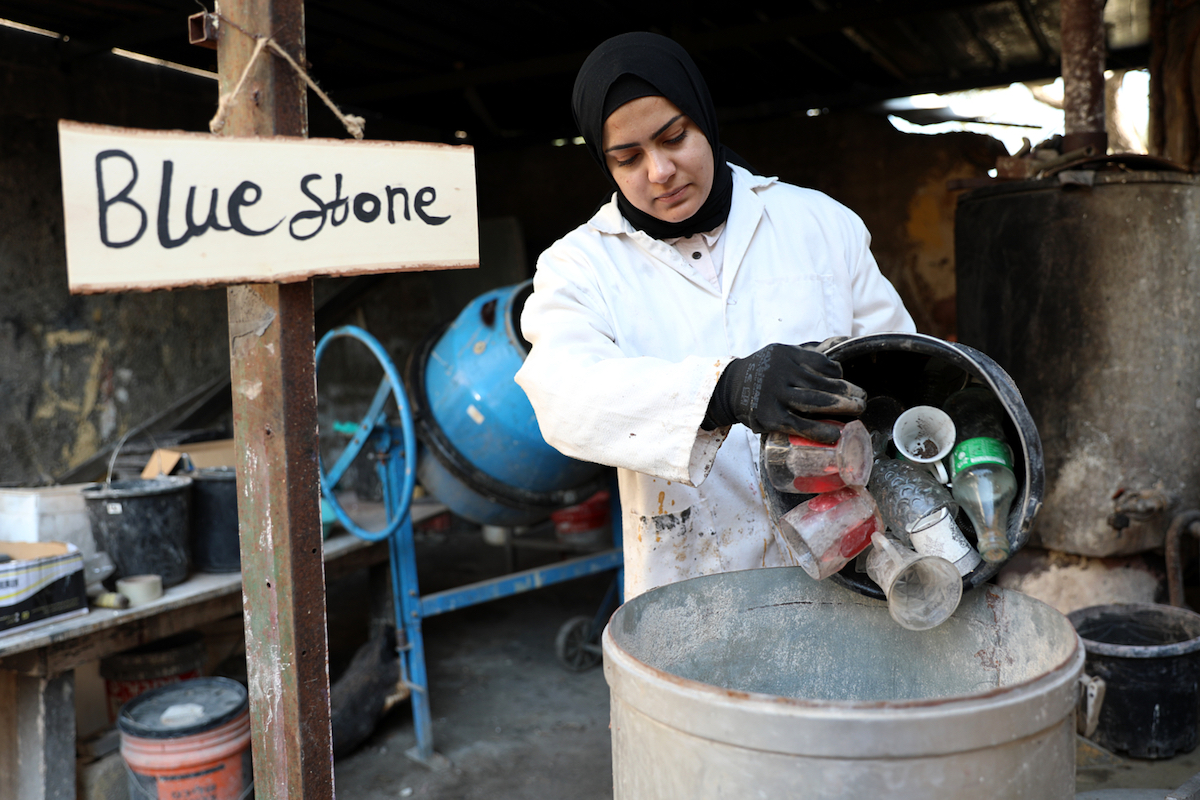Empowering women, protecting the earth
Date:
The climate crisis is not gender neutral.
As its impacts worsen, women and girls are experiencing unique and disproportionate harm—with the fallout amplifying existing gender inequalities. Typically more dependent on natural resources and disproportionately responsible for securing food, water and fuel, women are highly vulnerable to environmental shocks. They face heightened exposure to gender-based violence in the wake of conflict and instability exacerbated by climate change, and they are less likely to survive disasters. At the same time, their access to life-saving resources and to key decision-making spaces remains severely limited.
Nevertheless, women remain at the forefront of the fight against climate change, leading prevention, mitigation and adaptation efforts around the world. Research indicates that women’s representation in national parliaments leads to the adoption of more stringent climate policies, resulting in lower emissions. Their leadership in the workplace is associated with greater transparency around climate impact. And their participation in local natural resource management is linked to better resource governance and conservation outcomes.
This Earth Day we’re highlighting the crucial connections between sustainability and gender equality in policy, business, agriculture and beyond. The story below showcases how women’s empowerment can help protect the environment—and vice versa—in countries around the globe.
In Palestine, building environmental sustainability and breaking discriminatory practices

Rawan Rajab is a 22-year-old Palestinian woman from Kafr Al Libad village, located in Palestine’s West Bank. Combining her passion for the environment and her desire to make a positive impact in her community, Rawan founded “Blue Stone”, an environmentally conscious business that turns recycled glass into eco-friendly stones.
Rawan's journey as a sustainable business owner began in 2020: “During the pandemic, and as the world began to shift to digital platforms, I started enrolling in online courses on business management and entrepreneurship. At the same time, and as a result of the quarantine, the impact of human behaviour on our planet was also apparent,” she explained. “That’s how I got the initial idea to do something that would help the environment.”
With a small amount of funding from an international organization, Rawan started her own glass recycling workshop just 50 metres from her home. She also began a glass-sorting initiative, establishing 10 glass-sorting centres in Kafr Al Libad to help reduce the environmental impact caused by the disposal of glass waste. The initiative engages both women and men, helping to drive equal participation in recycling efforts and to increase awareness of women’s roles in non-traditional industries.
Through the joint programme on “Promoting Productive Employment and Decent Work for Women in Egypt, Jordan and Palestine”, implemented by UN Women and the International Labour Organization and funded by the Government of Sweden, Rawan helps to lead community-based dialogues around gender equality and women’s economic empowerment. By providing training and raising awareness, she hopes to break occupational stereotypes and inspire more women to become leaders within the field of sustainable development.
Rawan’s achievements ultimately led to her participation in COP27, the 2022 United Nations Climate Change Conference at Sharm El Sheikh, Egypt. She also managed to recycle three tons of glass in 2022 alone. Her business serves as a model for sustainable development and motivates women and men in her community to make positive social and environmental impacts.